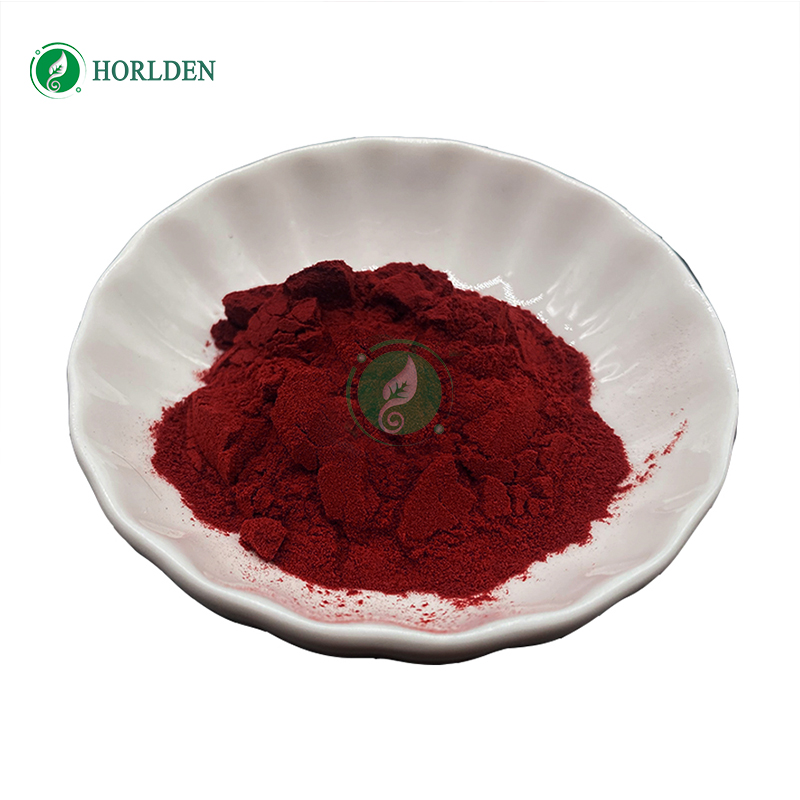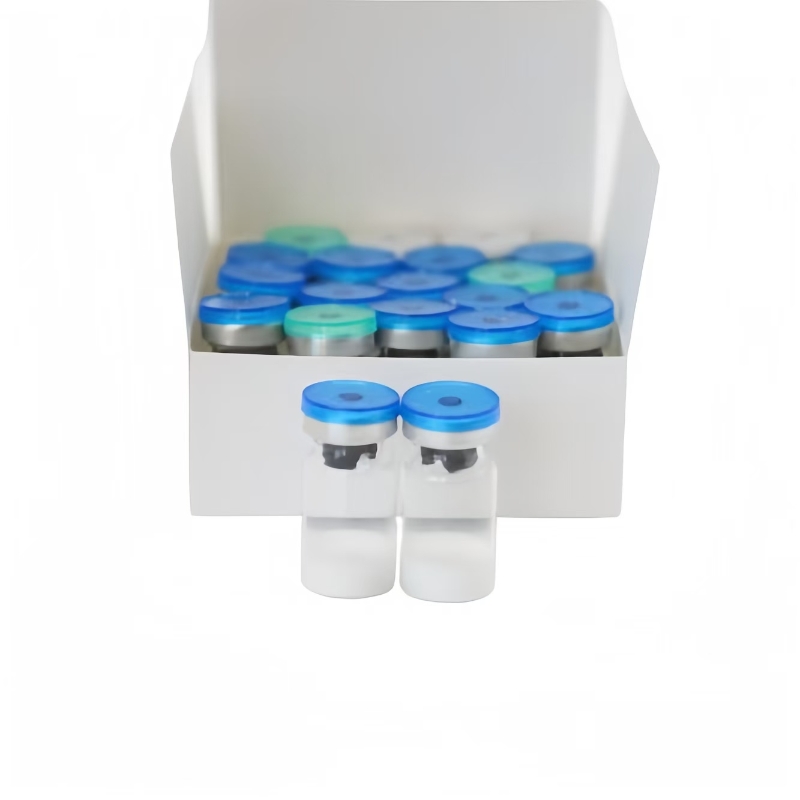In 2018, which new anticancer drugs will be launched in China?
-
Last Update: 2018-03-02
-
Source: Internet
-
Author: User
Search more information of high quality chemicals, good prices and reliable suppliers, visit
www.echemi.com
Guide reading 2018 has started With the continuous progress of cancer research, we believe that there will be more and more new anti-cancer drugs to meet with patients By referring to the public information of the drug review center (CDE) of the State Food and drug administration, we predict that these anticancer drugs are likely to be listed in China by 2018 1 on November 1, 2017, the marketing application of opdivo (nivolumab) was accepted by CDE This makes opdivo the first PD-1 / PD-L1 drug to apply for listing in China It was included in the priority review by CDE in December 2017 Opdivo relieves the inhibition of tumor cells on the immune system by inhibiting the PD-1 / PD-L1 signaling pathway The immune system is activated to clear the role of tumor cells Due to the powerful effect of immunotherapy, the first monoclonal antibody PD-1 is also expected to be listed in China Opdivo was first approved in Japan in July 2014 for the treatment of advanced melanoma, becoming the first approved PD-1 / PD-L1 drug in the world On December 22, 2014, opdivo was approved by the FDA to be marketed for the treatment of advanced melanoma patients who could not be surgically removed or had metastases and had no response to other drugs By using the human autoimmune system to help restore the anti-tumor immune response, opdivo has become an important treatment method for a variety of cancers At present, it has been approved for 9 indications, including melanoma, non-small cell lung cancer, renal cell cancer, classic Hodgkin's lymphoma, head and neck cancer, urothelial cancer, colorectal cancer, liver cell cancer and gastric cancer 2 On June 30, 2017, the marketing application of fqtinib for the treatment of advanced colorectal cancer was accepted by CDE On September 4, 2017, it was included in the priority review by CDE for the reason of "significant clinical value; major special project" Colorectal cancer is a high incidence cancer in our country and even in the world Chemotherapy is the main treatment for advanced colorectal cancer, and combined chemotherapy is often used The first-line treatment failure of colorectal cancer patients is mainly second-line chemotherapy, but the current second-line standard treatment failure of patients after the follow-up treatment is still lacking Fruquintinib is a highly selective long-acting inhibitor of VEGFR, and its indications include colorectal cancer and non-small cell lung cancer Fresco is the largest phase III clinical study on advanced colorectal cancer in China Fiquitinib is expected to be a new choice for patients with advanced colorectal cancer The fresco study is a multicenter, randomized, double-blind, placebo-controlled phase III clinical study in China The fresco study completely reached all the research endpoints preset in the trial The median OS of patients in the furaquitinib group was 9.30 months, significantly longer than that in the placebo group by 2.73 months (P < 0.001), reducing the risk of death by 35% (risk ratio HR = 0.65) PFS was also significantly prolonged (3.71 months vs 1.84 months, P < 0.001) and the risk of disease progression was reduced (HR = 26) Whether or not they had received anti VEGF or anti EGFR treatment before, the group of fiquitinib could benefit significantly At the same time, the safety of fiquitinib is good In conclusion, fiquitinib can be one of the standard three-line treatments for advanced colorectal cancer 3 On November 3, 2017, the application for listing (jxhs1700042) of lovatinib mesylate capsule in the treatment of HCC was accepted by CDE It was included in the priority review by CDE in December 2017 Lovatinib is a multi-target kinase inhibitor, which can block a series of regulatory factors including vegfr1-3, fgfr1-4, PDGFR α, kit and RET in tumor cells In 2015, it was approved by the U.S Food and Drug Administration (FDA) and the European Drug Administration (EMA) for the treatment of invasive, locally advanced or metastatic differentiated thyroid cancer, and in 2016, the FDA and EMA successively approved the treatment of advanced renal cell carcinoma with rivarotene and everolimus Liver cell carcinoma (HCC) is the second leading cause of cancer death in the world, leading to nearly 745000 deaths per year According to the latest data from China Cancer Registry, the incidence rate of primary liver cancer has ranked fourth in the common malignant tumors The mortality rate is third HCC accounts for 85% to 90% of the total Most patients have lost the opportunity of surgical resection when they visit In addition, chronic persistent infection of hepatitis B virus (HBV) is the most important risk factor of HCC in China According to the study of bridge, 77% of HCC patients in China have HBV infection At the same time, the large population of HBV carriers in China promotes the high incidence of HCC In the past 10 years, a series of molecular targeted drugs have encountered setbacks in the study of advanced HCC However, at the ASCO conference in 2017, there was a significant progress in revatinib In China, the total survival time of revatinib group was not inferior to that of sorafenib (13.6 months vs 12.3 months, HR = 0.92, 95% confidence interval [CI])= 0.79-1.06) At the same time, for the sub groups of patients in mainland China, Taiwan and Hong Kong, more significant efficacy was observed, especially for HBV related liver cancer patients, the total survival time of lovatinib was significantly better than that of sorafenib, and it was safe and controllable The results of the reflect study and its subgroup analysis of Chinese patients show that lovatinib will be a new target drug for the first-line treatment of unresectable HCC patients in the world, especially in mainland China, Taiwan and Hong Kong 4 Anlotinib on March 16, 2017, the application for listing of the independently developed anlotinib hydrochloride in the treatment of non-small cell lung cancer was accepted by CDE, went through special approval channels, and was included in the priority review by CDE on April 27, and is expected to be approved for listing in 2018 Enrotinib is a new type of small molecule and multi-target TKI, which can effectively inhibit VEGFR, PDGFR, FGFR and c-kit, and has the effect of anti angiogenesis and tumor growth Alter 0303 is a national multicenter, randomized, double-blind, placebo-controlled phase III study to evaluate the efficacy and safety of arotinib as a third-line treatment for advanced NSCLC The study reached the primary and secondary end points Compared with the placebo group, the OS and PFS of the arotene group were prolonged by 3.33 months and 3.97 months respectively; in terms of efficiency, the placebo group had no remission, and the orr of the arotene group was 9.18%, and the DCR was also significantly increased, 80.95% and 37.06% respectively For the first-line and second-line treatment failure of advanced non-small cell lung cancer patients in China, the appearance of anlotinib brings a breakthrough for the third-line treatment of advanced non-small cell lung cancer 5 olapari on December 1, 2017, olaparib, the world's first ovarian cancer PARP inhibitor, formally received the CDE acceptance of its application for listing in China PARP inhibitor is a cancer therapy targeting poly ADP ribose polymerase It is the first anticancer drug that has successfully used the concept of synthetic lethality to obtain approval for clinical use Its principle is: cancer cells in cancer patients with BRCA1 or BRCA2 germline mutation become very dependent on PARP due to the inactivation of BRCA protein If the activity of PARP protein is further inhibited, these cells will produce a lot of DNA damage when they divide, leading to cancer cell death Olaparib is such a targeted drug for PARP, which kills tumor cells by inhibiting the activity of PARP enzyme Olapalin was first approved by FDA in December 2014 as a four line therapy for advanced BRCA + ovarian cancer On July 17, 2017, olapari was approved by the FDA for the second-line maintenance treatment of adult ovarian epithelial cancer, salpingocarcinoma and primary peritoneal cancer patients with relapse after response to platinum drugs In January 2018, the FDA approved the new indications of olapari for the treatment of HER2 metastatic breast cancer patients with BRCA mutations This is the first time that PARP inhibitors have been approved for the treatment of breast cancer Olapari is the first and only PARP inhibitor approved for treatment outside the field of ovarian cancer On August 24, 2017, pyrrolidine maleate, a class 1.1 EGFR / HER2 inhibitor independently researched and developed, was accepted by CDE, and was included in the priority review by CDE on September 26, 2017 Pyrrolidine maleate is an oral, irreversible, pan erbB receptor tyrosine kinase inhibitor (TKI) with anti EGFR / HER1, HER2 and HER4 activities At present, the main indications are HER-2 positive metastatic / advanced breast cancer, HER-2 mutant advanced non-small cell lung adenocarcinoma, HER-2 expression positive advanced gastric cancer The main indication of breast cancer is breast cancer, which has entered stage III clinical In the phase II clinical trial for breast cancer patients who failed to receive anthracycline and Taxus drugs and received chemotherapy no more than 2 lines after relapse / metastasis, the objective response rate of piflotinib maleate combined with capecitabine was 78.5%, which was about 21% higher than that of lapatinib group The median progression free survival was 18.1 months in the pyrrolidine group and 7.0 months in the lapatinib group The median progression free survival of pyrrolidine group was significantly longer than that of rapatinib group (P < 0.0001) The risk of disease progression or death was 63.7% lower in the pyrrolidine group than in the lapatinib group (HR = 0.363) And the patients were well tolerated On January 2, 2018, the listing application of perjeta, a heavy-duty breast cancer drug, was accepted by CDE and has obtained the qualification of CFDA priority approval Both partuzumab and trastuzumab are human monoclonal antibodies targeting HER2 positive By binding HER2, they block the heterodimerization of HER2 and other her receptors, thus slowing down the growth of tumor However, they have different action sites on HER2, and the combination of them has synergistic effect As early as June 2012, patozumab was approved by the FDA, combined with trastuzumab (Herceptin) and docetaxel for metastatic breast cancer without anti HER2 treatment or chemotherapy In September 2013, patozumab was approved by FDA, and used in combination with trastuzumab and chemotherapy for the new adjuvant treatment of HER2 + breast cancer On December 20, 2017, FDA approved the combination of patozumab, trastuzumab and chemotherapy for adjuvant treatment of early HER2 + breast cancer patients with high risk of recurrence At the same time, the new adjuvant therapy for HER2 positive breast cancer was changed from accelerated approval to full approval Trastuzumab + patorzumab + chemotherapy has been approved by more than 75 countries in the world for new adjuvant treatment of HER2 positive breast cancer, becoming the standard treatment for HER2 positive breast cancer patients.
This article is an English version of an article which is originally in the Chinese language on echemi.com and is provided for information purposes only.
This website makes no representation or warranty of any kind, either expressed or implied, as to the accuracy, completeness ownership or reliability of
the article or any translations thereof. If you have any concerns or complaints relating to the article, please send an email, providing a detailed
description of the concern or complaint, to
service@echemi.com. A staff member will contact you within 5 working days. Once verified, infringing content
will be removed immediately.







